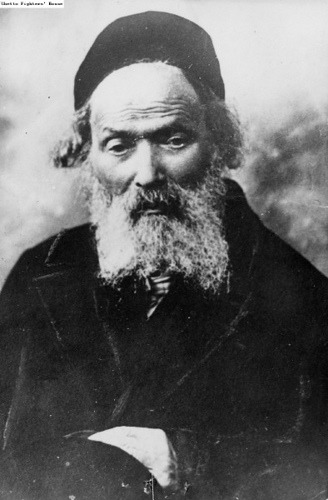Legal Schmooze: How far can you go when selling a car?
By: Rabbi Michael Merdinger, Esq., Special to the Chronicle
A monthly column in which we look at how Jewish and American law take on today’s issues. For today: When you are a used car salesman. Having tried to sell two cars over the past several years, I can tell you that it’s a bit stressful — you want to market your car to get the best possible price but doing so raises some issues: how pretty a picture can I paint of my car when the picture is not quite so pretty? Do I have to tell the potential buyer about that sticking glove compartment or that oil drip? Can I tell the buyer that he’s getting a great price, even if he’s paying what’s really a reasonable price?
Let’s start with the easy things. Fraud is always bad. This is true in Missouri, in Kansas, in Jewish law and it stands to reason it’s true in our sister states as well. For example, thus sayeth the State of Kansas, that it’s a crime to try to sell somebody something through: “Deception, fraud, false pretense, false promise, or knowing misrepresentation of a material fact” (KS 21-4403). Done. You can’t affirmatively lie or misrepresent your vehicle (or whatever else you’re selling) to the potential buyer. You can’t say “nope, no oil leaks out of this king of the road.”
Missouri goes a step further. Not only are all those bad things like “deception, fraud, false pretense, misrepresentation” no-nos, but so are “concealment, suppression, or omission of any material fact” (Missouri Revised Statutes 407.020). In other words, if you know about that oil drip, you’ve got to disclose. Now this wouldn’t apply to minor defects which are not “material facts” that the buyer relies on in purchasing the vehicle.

Jewish law takes yet another approach. The classic code of Jewish law by Rabbi Yosef Caro says, “If he knows that there is a flaw in his merchandise he must inform the potential purchaser.” (Choshen Mishpat 228:6). This is different from what we saw in the Missouri statute because it is not limited to a “material fact,” but extends even to flaws which are minor and wouldn’t necessarily even be sufficient to change the value of the goods.
Why is there such a difference? It seems to me that American law is primarily concerned with preventing business practices which are unfair and unjust. Rules of this nature help foster a marketplace which is reliable and in which people can feel comfortable doing business with each other — the Midwest as opposed to the Wild West. Kansas’ and Missouri’s rules agree on this principle, but differ about whether it extends to an act of omission (leaving out or concealing a material fact).
There’s an extra law on the books in Jewish law that’s relevant here as well, a prohibition of geneivat da’at, theft of the mind. A precise definition is beyond the scope of this column, but an example from the Talmud may serve as an introduction: “Do not pressure someone with an invitation to eat at your (home) when you know he won’t, or give him a gift when you know he won’t accept” (Chullin 94a). Why not? The problem is that the invitee increases his goodwill and good feeling towards the offeror, thinking that the offeror is a better friend than he really is. This is considered “theft” of the invitee’s goodwill. Accordingly, you can’t tell the potential buyer that you’re giving him such a great deal when in fact you’re giving him an okay deal, because you’re stealing goodwill.
For those who are thinking it’s impossible to sell a car if you have to “sell” its flaws, here’s a caveat. You can certainly market the good qualities of your car, pointing out all it has to offer, and you don’t have to advertise the flaws up front but only at a reasonable time during the discussions so the buyer can make an informed and unpressured decision.
Hopefully, he won’t care about the oil drip because you’ll have sold him already on the great sound system.
Rabbi Michael Merdinger, an Overland Park resident, is a graduate of the
Rabbi Isaac Elchanan Theological Seminary of Yeshiva University and New York University School of Law. He can be reached at
mfm@merdingerlaw.com.
Rabbi Merdinger explains in the above article that halacha requires disclosure of known flaws and prohibits deceptive promises and claims. I thought this was a good article for inclusion on the blog during a political season especially in terms of the two candidates vying for the democrat party nomination. Without naming names, while both candidates could qualify as lousy in both categories, one candidate excels in deception and the other in failing to provide adequate disclosure. Lets not bring up Israeli politics in this discussion shall we? No? Okay then.

Suffice it to say, the Olmert government is acting under a veil of official deception in terms of what is under negotiation with the arabians and who is doing the negotiating. Confirmations and denials regarding the accountability of the government to the citizenry are really asking for too much.

(http://zioncon.blogspot.com/2007_06_01_archive.html)






















